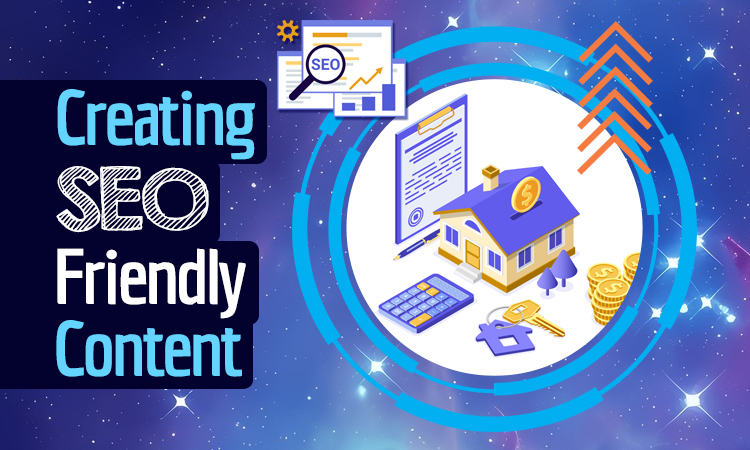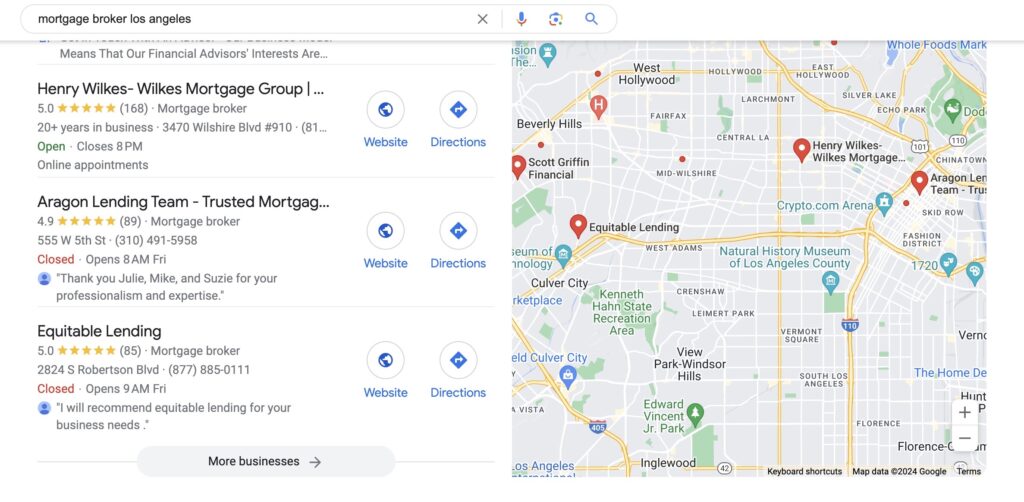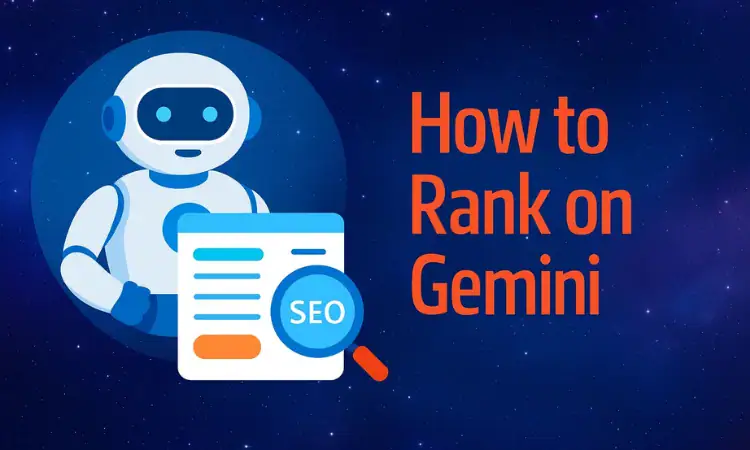What Is Mortgage Broker SEO?
Mortgage broker SEO is the process of optimizing your website and Google My Business (GMB) profile to rank higher for relevant keywords. SEO increases your online visibility, driving more traffic to your site and generating more leads, ultimately helping you close more deals.
General SEO Vs. SEO for Mortgage Brokers
Mortgage Broker SEO differs from general SEO due to strict regulatory compliance and the industry’s high-stakes nature.
Mortgage marketing is heavily regulated by federal agencies like the Consumer Financial Protection Bureau (CFPB) and must adhere to truth-in-lending and fair housing laws. Unlike many other sectors, this means content must be precise and legally compliant.
In addition, mortgage brokers operate in a “Your Money, Your Life” (YMYL) space, necessitating a solid focus on Experience, Expertise, Authoritativeness, and Trustworthiness (E-E-A-T). Quality, accurate content is essential to build trust and meet Google’s E-E-A-T standards.
Note: At the end of this guide, we share some tips on maximizing E-E-A-T signals and satisfying Google’s YMYL expectations.
How Long Does It Take To See Results?
This is a popular and challenging question because many variables impact the answer. The short version is that an SEO campaign takes 6-12 months to produce results.
In the above example, we took a site from 100 visitors per month to over 14,500 monthly visitors in 12 months
Check out our complete guide on how long SEO takes to work for a more detailed look at why this can vary significantly.
What Kind of ROI Can You Expect?
The median home sales price in the United States is $420,800 as of the first quarter of 2024, according to research provided by The Motley Fool.
As a mortgage broker, your payout is typically 1-2% of the loan value, based on the median home price; this is worth $4200-$8400 per closed deal.
If you invested $10,000 per month in SEO, you would need 1-2 deals per month to cover your costs and, in many cases, see a positive ROI. Any deals after the first two are profitable. We have helped mortgage companies generate 10-15 deals per month in less than a year.
Your path and ROI will vary based on your competition, where you are starting from, and your SEO budget, but it is hard not to see a positive ROI with a sound mortgage broker seo strategy. Unlike PPC ads, SEO also compounds over time, meaning your ROI will increase as your campaign matures.
Even though SEO takes time, the long-term value and unmatched ROI potential make it worth the wait.
Search Engine Optimization for Mortgage Brokers
Many brokers rely heavily on search engine optimization as a fundamental pillar of their mortgage marketing strategy.
Unlike buying shared leads, a request from your website is familiar with your brand and what makes you unique, making them more likely to engage with your sales team.
Looking for a done-for-you service that will help you generate more leads and close more deals each month? Get in touch now to discuss our mortgage broker SEO services.
Below, we will walk you through the basics of mortgage broker seo so you can attract more traffic from the search results.
Setting Goals and Defining a Successful Campaign
Setting clear, measurable goals is crucial to launching a successful SEO campaign. These goals will guide your efforts and provide benchmarks for success. For mortgage brokers, typical goals might include increasing organic traffic, improving search engine rankings, and generating more qualified leads.
Start by defining SMART (Specific, Measurable, Achievable, Relevant, Time-bound) goals. For example, aim to increase organic traffic by 20% within six months or increase leads from 10 per month to 15. These goals provide a clear target and make it easier to measure progress and success.
Conducting Competitor and Market Research
Understanding your competition and the market landscape is essential for an effective mortgage broker SEO strategy. Start by identifying your top competitors and analyzing their SEO tactics.
Tools like SEMrush, Ahrefs, and Google Analytics can help you gather data on your competitors’ keyword strategies, backlink profiles, and content performance.
Look for gaps and opportunities in their strategies. For instance, if a competitor doesn’t rank well for specific keywords but lacks comprehensive content, you can create more in-depth articles to fill that gap. Compile your findings into actionable insights that will inform your SEO strategy.
Auditing Your Existing Web Presence
Conducting a thorough website audit is the first step in identifying areas for improvement. Use tools like Screaming Frog, Moz, and Google Search Console to evaluate your site’s technical SEO, on-page SEO, content quality, and backlink profile. Key areas to focus on include site speed, mobile usability, broken links, and duplicate content.
Prioritize fixes based on their impact on SEO. For example, improving site speed can improve user experience and search engine rankings. Document the audit findings and create a plan to address each issue systematically.
Developing Your Organic SEO Strategy and Roadmap
Based on the insights gained from your research and audit, develop a strategic SEO plan. This plan should outline your goals, key initiatives, and timelines. Prioritize tasks based on their potential impact and feasibility.
Create a detailed roadmap with specific actions, deadlines, and responsible parties. This roadmap will serve as a guide to keep your SEO efforts on track and ensure accountability. Regularly review and update the roadmap to reflect progress and any changes in strategy.
Fixing Technical Website Issues
Technical SEO issues can significantly impact your website’s performance and rankings. Common problems include slow load times, poor mobile usability, and broken links. Use tools like Google PageSpeed Insights and Mobile-Friendly Test to identify and fix these problems.
For example, optimize images to improve load times, ensure your site is mobile-friendly, and fix broken links to enhance user experience. Addressing these technical issues can improve search engine rankings and user experience.
Conducting Keyword Research
Keyword research is vital for identifying high-value terms your potential clients search for. Use tools like Ahrefs and SEMrush to find relevant keywords with high search volume and low competition.
Focus on both short-tail keywords (e.g., “mortgage broker”) and long-tail keywords (e.g., “best mortgage rates in [Your City]”).
Create a comprehensive keyword list and map these keywords to specific pages on your site. This will ensure that each page is optimized for relevant search terms, improving your chances of ranking well in search results.
Here are some specific example keywords for mortgage brokers, categorized into local, informational, and commercial keywords:
Local Keywords
Local keywords target potential clients searching for services in specific geographic areas:
- “mortgage broker in [Your City]”
- “best mortgage rates in [Your City]”
- “home loans [Your City]”
- “mortgage refinancing in [Your City]”
- “local mortgage lenders near me”
Informational Keywords
Informational keywords address common questions and provide valuable information to potential clients:
- “how to get a mortgage”
- “mortgage pre-approval process”
- “fixed vs. variable mortgage rates”
- “first-time homebuyer tips”
- “how to refinance a mortgage”
Commercial Keywords
Commercial keywords target potential clients ready to take action, such as applying for a mortgage or contacting a broker:
- “apply for a mortgage”
- “mortgage broker quotes”
- “best mortgage lenders for first-time buyers”
- “mortgage rate comparison”
- “get a mortgage pre-approval”
By incorporating these specific keywords into your content, meta tags, headers, and URLs, you can improve your website’s visibility in search engine results and attract more targeted traffic.
Regularly updating and expanding your keyword list based on new trends and search behavior will ensure your SEO strategy remains effective and aligned with potential clients’ needs.
Building Your Content Plan
A well-structured content plan is essential for a consistent and effective mortgage SEO strategy. Start by identifying the types of content that will resonate with your target audience, such as blog posts, guides, videos, and infographics. Address potential clients’ common questions and pain points to establish authority and trust.
Create a content calendar to schedule and manage content production. This calendar should outline topics, publication dates, and responsible team members. Regularly update and review the content plan to ensure it aligns with your SEO strategy and business goals.

Creating Optimized and Engaging Content
It is crucial to create SEO-friendly content that engages and converts visitors. Focus on on-page optimization, including the use of keywords, meta tags, and headers. Ensure your content is valuable and informative, addressing your target audience’s common questions and pain points.
Craft compelling headlines, use multimedia elements like images and videos, and incorporate internal links to other relevant content on your site. This improves SEO, enhances user experience, and encourages visitors to explore your site further.
Optimizing Internal Links
Internal linking helps distribute link equity across your site and improves navigation. Create an effective internal linking structure by linking related content and descriptive anchor text. This allows search engines to understand the context and importance of your pages.
Conduct an internal link audit to identify opportunities for improvement. Ensure that essential pages are easily accessible and that link equity flows naturally throughout your site. Regularly update internal links as you add new content.
Getting Links From Other Websites
Building high-quality backlinks is essential for improving domain authority and search engine rankings. Focus on acquiring links from reputable and relevant websites. Strategies include guest posting, outreach campaigns, and creating shareable content like statistical posts and whitepapers.
Craft personalized outreach emails to connect with website owners and influencers in your industry. Emphasize the value of your content and how it can benefit their audience. High-quality backlinks can significantly boost your mortgage SEO efforts.
Local SEO
Optimizing your website for local searches is critical for attracting nearby clients interested in your mortgage services. Target local keywords, create localized content, and ensure NAP (Name, Address, Phone number) consistency across all online platforms. Leverage local directories and engage with the community to enhance your local SEO.
For example, participate in local events, sponsor community activities, and collaborate with local businesses. These efforts can improve your visibility in local search results and attract more local clients.
GMB Profile Setup and Optimization
Setting up and optimizing your Google My Business (GMB) profile is vital for local SEO. A well-optimized GMB listing can improve your visibility in local searches.
Note: GMB is now officially called GBP (Google Business Profile), although most still refer to it as GMB.
Complete your profile with accurate information, select appropriate categories, and encourage customer reviews.
Include high-quality photos, update your business hours, and respond to reviews to engage with potential clients. A detailed GMB profile can enhance your local presence and attract more clients.
Citation Building
Citations mention your business on other websites and play a crucial role in local SEO. List your company on reputable directories and ensure consistent NAP information across all platforms. This consistency signals reliability to search engines and improves local rankings.
Focus on high-authority citation sites and directories that are relevant to mortgage brokers. Automate the citation-building process using tools like Yext or BrightLocal to save time and ensure accuracy.
Local Link Building
Acquiring local backlinks can boost your local search rankings. Partner with local businesses, sponsor events, and join local business associations. These activities help build relationships and earn local backlinks.
Effective local link-building tactics can enhance your SEO results and attract more local clients. Here are a couple of simple methods for finding and securing local backlinks.
Tracking KPIs and Making Adjustments
Tracking key performance indicators (KPIs) is essential for measuring the impact of SEO on your mortgage website.
Focus on the top 3 KPIs:
- Organic Traffic: Measure the number of visitors coming from search engines.
- Keyword Rankings: Track the positions of your target keywords in search results.
- Leads: Monitor the percentage of visitors who take a desired action, such as filling out a contact form.
Monitor these KPIs regularly using tools like Google Analytics and SEMrush. Analyze the data to identify areas for improvement and make data-driven adjustments to your strategy.
This continuous optimization ensures that your mortgage SEO efforts remain effective and aligned with your business goals.
Mortgage broker SEO is time-consuming and requires you to keep up with Google’s ever-changing algorithm. If you don’t have the time or desire to run a complete search engine optimization campaign, you can partner with an agency that will handle some (or all) of it.
Mortgage Broker SEO Services
At Stellar SEO, we specialize in elevating the visibility of mortgage websites with expert guidance and proven results.
With a track record of optimizing mortgage brokerages for top-tier Google search visibility, we bring extensive experience in digital marketing tailored to the mortgage industry.
Maximize Your Leads from Search Engines
Ready to take your SEO to the next level?
Let us handle the complexities, refine your strategies, and propel your mortgage broker website to the forefront of the digital mortgage market. Your SEO success begins with just one click.
Mortgage Broker SEO FAQs
How Can Mortgage Brokers Maximize E-E-A-T Signals?
Mortgage broker websites can maximize E-E-A-T (Expertise, Authoritativeness, Trustworthiness) signals by publishing high-quality, informative content that addresses common mortgage questions. Highlight your qualifications and experience to showcase your expertise.
Build authoritativeness by earning backlinks from reputable websites and collaborating with industry influencers. Enhance trustworthiness by displaying customer testimonials, ensuring clear contact information, and regularly updating content to reflect industry standards. Optimize your Google My Business (GMB) profile with accurate information and encourage positive reviews.
What Exactly Is YMYL, and How Do I Satisfy Google?
YMYL (Your Money, Your Life) content impacts a person’s financial stability and well-being. Satisfying Google involves providing accurate, comprehensive information and using reliable sources.
Demonstrate E-E-A-T by highlighting expertise and industry experience. Maintain transparency with clear business information and privacy policies. Regularly update your content to reflect current trends and regulations. Secure your website with HTTPS and protect client data. These practices will help your mortgage company meet Google’s YMYL standards, improving search engine rankings and client trust.
How Does SEO Impact Lead Generation for Mortgage Brokers?
Mortgage broker SEO significantly impacts lead generation by increasing online visibility and attracting targeted traffic to your website. Optimized content that ranks well in search results drives more potential clients to your site, leading to higher inquiries and conversions.
Studies show that websites on the first page of Google capture 71-92% of search traffic, highlighting the importance of effective mortgage broker SEO for lead generation.


















